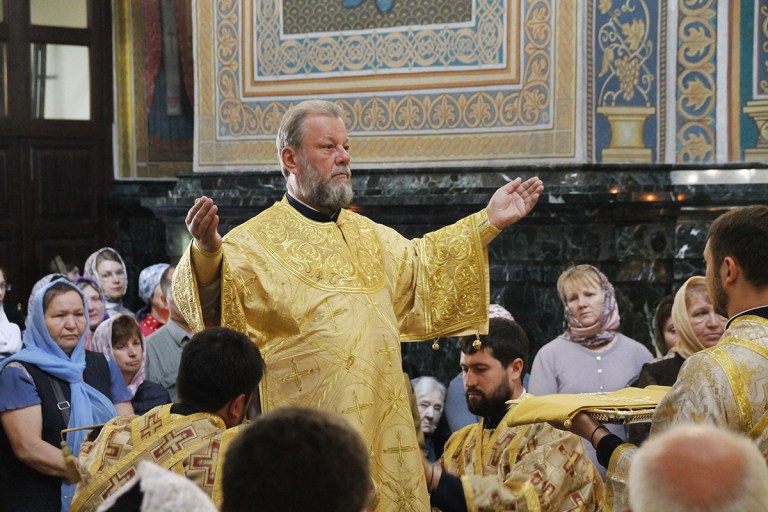On the Fourth Sunday after Pentecost, Metropolitan Vladimir celebrated the Divine Liturgy in the Nativity of the Lord Cathedral, assisted by Cathedral clergy and surrounded by numerous church-goers.
This Sunday’s Gospel Reading (Matthew 8: 5-13) relates about the healing of a centurion’s servant. We can note the strong and deep faith of the centurion, who was a pagan and did not share the Jews’ faith, but seeing Lord Jesus Christ, believed. Seeing such strong faith, the Gospel says, “He marveled, and said to those who followed, “Assuredly, I say to you, I have not found such great faith, not even in Israel!” (Mat. 8, 10). Then Jesus told all those who were present, that many people from the entire world will believe and enter the Kingdom of God, but the unbelieving sons of the Kingdom will be cast out. By those words, Christ warned the Hebrews that they should not live in isolationist pride of belonging to God’s people, but rather be active believers and prove their faith by acts of love. At the same time, the Lord underlined by this that God, as the creator of all nations, loves everybody, from east and west, and the sons of the Kingdom are all those who believe in God and follow the principles of faith.
The Gospel also underlines another remarkable moment – the centurion’s humility, for he, unlike many, did not insist that Christ visited his humble home, saying “I am not worthy” (Mat. 5, 8). It was enough for him that Christ considered his request, that the Lord heard his servant’s pain and healed it.
It is also important to note that this rough Roman officer asked a Jew (that is, a representative of an enslaved nation), whom he believed to be not a simple man, not for himself, but for his servant, that is, for someone else, who was dear to him. This teaches us to pray to God not only for ourselves, but for our brothers and sisters, uniting with them in prayer, for Lord Jesus said, “where two or three are gathered together in my name, there am I in the midst of them” (Mat. 18, 20).
Synodal Sector of Institutional Communication and Mass-Media Relations





